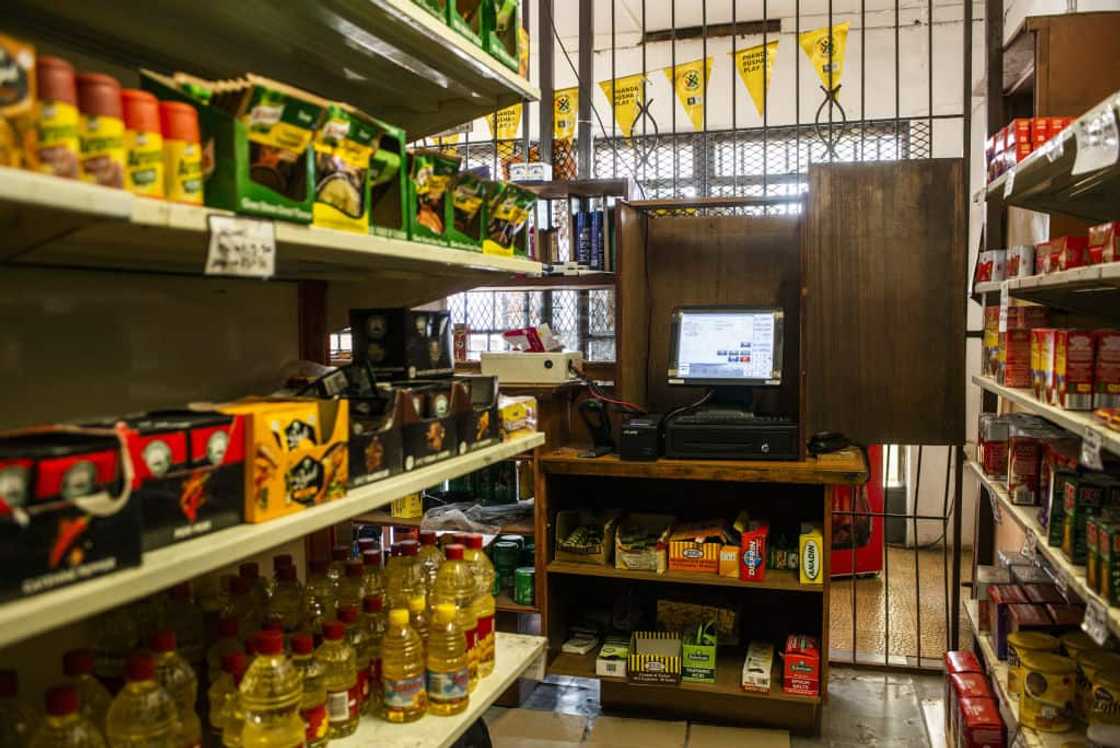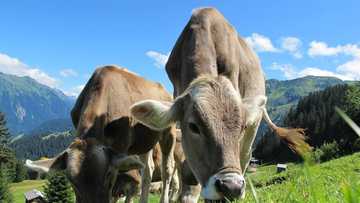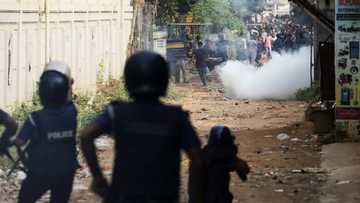SA Government To Inspect Township, Rural Spaza Shops for Counterfeit and Expired Goods, Mzansi Happy
- Khumbudzo Ntshavheni announced that the government will audit spaza shops in the villages and townships of South Africa
- She also added that municipalities should enforce small business compliance bylaws
- Briefly News spoke to the Consumer Goods Council of South Africa, which said that selling counterfeit goods has negative impacts on the economy
PAY ATTENTION: Watch the hottest celebrity stories on our YouTube channel 'Briefly TV'. Subscribe now!
Tebogo Mokwena, Briefly News's current affairs journalist, offered coverage of current affairs and societal issues during his eight years at Daily Sun and Vutivi Business News.

Source: Getty Images
The minister in the Presidency, Khumbudhzo Ntshavheni, has called for an urgent need to implement bylaws to regulate businesses. Ntshavheni also said that the government will inspect spaza shops as there is concern that many children are being poisoned by eating expired foods bought from spaza shops. The Consumer Goods Council of South Africa told Briefly News that counterfeit goods and expired food products affect legitimate businesses.
Government will audit spaza shops
Ntshavheni spoke during the recent press briefing, which followed the cabinet meeting held over the weekend. According to SABC News, Ntshavheni announced that the government will inspect township businesses, which include spaza shops. It would be a joint effort between the departments of labour, health and small business development.
Spaza shops in villages and townships will also be audited to ensure they are registered. This is to curb the rising cases in which children have been hospitalised after consuming expired foods.
Fake and expired foods affect SMMEs
Matlou Setati, the Consumer Goods Council of South Africa's Executive of Food Safety and Sustainability Initiative, told Briefly News about the impact this has on small businesses.
“The sale of counterfeit goods and expired food products affects both the legitimate brand owners, small businesses as well as the broader economy. For small businesses, it means they are competing against cheaper yet unsafe products, and for brand owners, there is a loss of potential income as their products are counterfeited. For the economy, there is a loss of revenue for the government as people selling counterfeit goods do not pay applicable taxes such as VAT,” she said.
“There are also health risks related to counterfeited and expired food products as it cannot be assured if they are produced under health and safety required standards, and we have seen people, including children, falling ill after consuming such suspect foods. Sadly, there have also been fatalities reported. “
Matlou believes that people in townships and rural areas need to be educated.
“Although we understand and support that the rule of law must be upheld, there is a need for a significant education campaign to raise awareness among people, especially in townships and rural areas, about the health dangers of buying and consuming expired foods or counterfeit products. As CGCSA, we support efforts by relevant authorities such as municipalities, provincial and national health departments, and law enforcement to respond to this problem as duly mandated,” she said.
South Africans give government suggestions
South Africans on Facebook made different suggestions on how the government can clamp down on illegal spaza shops.
Ellen Morepje said:
“Make a move now. Create jobs out of these spaza shops. Hire our people to inspect and monitor these shops.”
Motsamai RD Motsamai asked:
“What happened to the health inspectors? This wouldn’t happen if they were deployed and doing their job.”
Patrick Sindane added:
“Our South African government will only take action when the incident gets media attention.”
Bongani Mgubela observed:
“I’ve never heard of a South African running a spaza shop in Pakistan, Bangladesh or Somalia.”
Roodepoort warehouse manufacturing fake foods closed
In a similar article, Briefly News reported that police shut down a warehouse in Roodepoort after it was found to be manufacturing fake foods and selling expired goods.
Police raided the warehouse and found that it violated a string of municipal bylaws. The food in the warehouse was stored in unsanitary conditions, and the property crawled with insects.
Netizens decried the warehouse and demanded that the government take stern action against such businesses.
PAY ATTENTION: Сheck out news that is picked exactly for YOU ➡️ click on “Recommended for you” and enjoy!
Source: Briefly News




